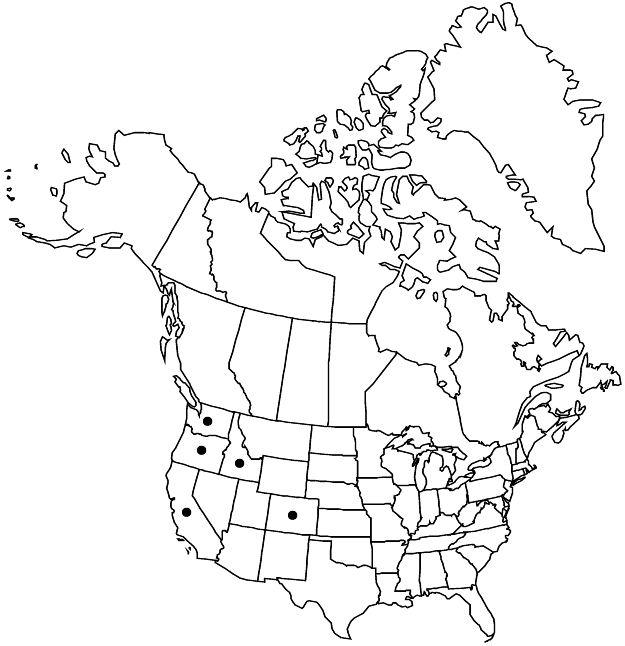Difference between revisions of "Viola sheltonii"
in War Department [U.S.], Pacif. Railr. Rep. 4(5): 67, plate 2. 1857.
FNA>Volume Importer |
imported>Volume Importer |
||
| (5 intermediate revisions by 2 users not shown) | |||
| Line 1: | Line 1: | ||
{{Treatment/ID | {{Treatment/ID | ||
|accepted_name=Viola sheltonii | |accepted_name=Viola sheltonii | ||
| − | |accepted_authority=Torrey | + | |accepted_authority=Torrey |
|publications={{Treatment/Publication | |publications={{Treatment/Publication | ||
|title=in War Department [U.S.], Pacif. Railr. Rep. | |title=in War Department [U.S.], Pacif. Railr. Rep. | ||
| Line 16: | Line 16: | ||
|name=Viola sheltonii var. biternata | |name=Viola sheltonii var. biternata | ||
|authority=(Greene) A. Nelson | |authority=(Greene) A. Nelson | ||
| + | |rank=variety | ||
}} | }} | ||
|hierarchy=Violaceae;Viola;Viola sheltonii | |hierarchy=Violaceae;Viola;Viola sheltonii | ||
| Line 40: | Line 41: | ||
-->{{#Taxon: | -->{{#Taxon: | ||
name=Viola sheltonii | name=Viola sheltonii | ||
| − | + | |authority=Torrey | |
| − | |authority=Torrey | ||
|rank=species | |rank=species | ||
|parent rank=genus | |parent rank=genus | ||
| Line 55: | Line 55: | ||
|publication year=1857 | |publication year=1857 | ||
|special status=Endemic | |special status=Endemic | ||
| − | |source xml=https:// | + | |source xml=https://bitbucket.org/aafc-mbb/fna-data-curation/src/2e0870ddd59836b60bcf96646a41e87ea5a5943a/coarse_grained_fna_xml/V6/V6_283.xml |
|genus=Viola | |genus=Viola | ||
|species=Viola sheltonii | |species=Viola sheltonii | ||
Latest revision as of 22:20, 5 November 2020
Plants perennial, caulescent, not stoloniferous, 3–27 cm. Stems 1–3, prostrate, decumbent, or erect, glabrous or sparsely puberulent, from short, often vertical, deep-seated or usually shallow, subligneous rhizome. Leaves basal and cauline; basal: 1–3, palmately compound, leaflets 3; stipules lanceolate-ovate, margins laciniate with gland-tipped projections, apex acute to acuminate; petiole 8.6–21 cm, glabrous or sparsely puberulent; blade reniform or ovate to ± orbiculate, 2–7 × 2–11 cm, coriaceous, base tapered, each leaflet cleft or dissected into 3 ± obovate lobes, each lobe further divided into 2–3 oblanceolate, pandurate, spatulate, oblong, lanceolate, or elliptic, lobes 2–10 mm wide, margins entire, ciliate or eciliate, apex acute to obtuse, mucronulate, surfaces glabrous or sparsely puberulent; cauline similar to basal except: stipules ovate to lanceolate, margin projections gland-tipped or eglandular, apex long-acuminate; petiole 5.5–12 cm; blade 1.2–6.3 × 1.2–10.5 cm. Peduncles 5–19 cm, glabrous or sparsely puberulent. Flowers: sepals lanceolate, margins ciliate or eciliate, auricles 0.5–1 mm; petals deep lemon-yellow adaxially, upper 2 dark brown to brownish purple abaxially, lower 3 and sometimes upper 2 brownish purple-veined, lateral 2 bearded or beardless, lowest 7–18 mm, spur yellowish with brownish purple specks, gibbous, 1–2 mm; style head bearded; cleistogamous flowers axillary. Capsules oblong to ovoid, 6–8 mm, glabrous or puberulent. Seeds brownish, shiny, ca. 2.5 mm. 2n = 12.
Phenology: Flowering Mar–Jul.
Habitat: Red fir, yellow pine, mixed evergreen, chaparral, oak woodlands, rich or gravelly soil
Elevation: 800–2500 m
Distribution

Calif., Colo., Idaho, Oreg., Wash.
Discussion
The cleistogamous flowers of Viola sheltonii are borne on long, prostrate peduncles usually buried in duff around the plant. Mature cleistogamous capsules are usually hidden and the dehisced seeds remain close to the parent plant. Some populations of V. sheltonii produce only cleistogamous flowers (D. Klaber 1976).
Selected References
None.